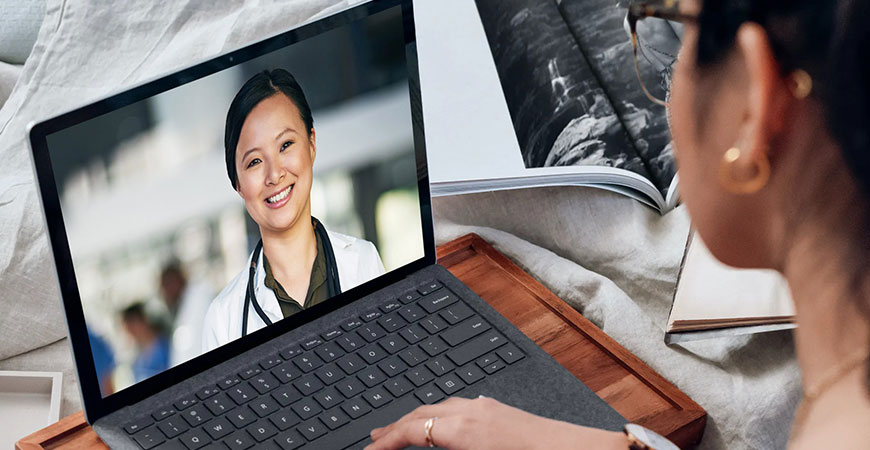
Researchers at the Center for Information Technology Research in the Interest of Society (CITRIS) and the Banatao Institute at the University of California have launched a new public-private pilot initiative to bring telehealth services to underserved rural residents in Merced County.
Accountability, Coordination and Telehealth in the Valley to Achieve Transformation and Equity (ACTIVATE) is partnering with Livingston Community Health, a clinic that serves mostly Latinx communities with primary and preventative health care services regardless of their ability to pay. UC Merced’s Health Sciences Research Center (HSRI), the UC’s CITRIS network, tech distributors, community-based organizations and government agencies are also taking part to reach people who are vulnerable to the worst outcomes of the COVID-19 pandemic with the technology, skills and connections they need to access and use health services.
The San Joaquin Valley has had attention focused on some of its problems, including farmworkers and their increased exposure to COVID-19. But HSRI Director Professor Deborah Wiebe said this collaboration can lead to positive outcomes.
“This feels like a way to start turning the tide on issues people have been concerned with for many years, including lack of access to health care, vulnerable populations and health disparities,” she said. “This is one of the bright spots that emerges from the pandemic.”
ACTIVATE is co-led by Professor David Lindeman, director of CITRIS Health, and Katherine Kim, professor at the Betty Irene Moore School of Nursing and the School of Medicine at UC Davis.
“The patients we’re serving with ACTIVATE are some of the most vulnerable members of society, and not only to COVID-19,” Kim said. “Many are low-income, undocumented, Latinx agricultural workers — these communities have the least access to quality health care services.”
California’s rural San Joaquin Valley faces some of the worst health disparities in the state and country. Many residents lack access to basic health care, and service providers in the area have limited reach and coverage. The Robert Wood Johnson Foundation’s 2020 County Health Rankings recently ranked Merced County as among the “least healthy” counties in California. Community health workers, public health activists and local leaders are committed to progress on this front, focusing on investing in quality, affordable care that meets residents where they are and improves overall health outcomes in their community.
“We still have a long way to go, but things are beginning to line up in very important ways,” Wiebe said.
Though details have not been announced, HSRI affiliates will contribute to the partnership through translational research, public outreach and engagement, education and project evaluation.
“These are incredibly complex issues that cannot be addressed without all hands on deck,” Wiebe said. “What I love about ACTIVATE is that it’s a public-private project that can make progress in ways no single entity could.”
ACTIVATE will first launch at Livingston Community Health in Merced County, and is expected to rapidly expand throughout the state to other community health centers (CHCs) and clinicians who serve vulnerable populations. The goal is not just to provide the technology needed for telehealth and remote health monitoring, but also to ensure that patients are empowered to use it and see greater health outcomes as a result.
Program participants will receive health education and training in digital literacy as well as software and hardware (phones, tablets and other remote monitoring equipment) needed to connect with health care providers and monitor chronic health conditions. Building on health education from community health workers and medical assistants, the program emphasizes training of primary care practitioners in CHCs. These critical health care workers are at the front lines of health care in the era of COVID-19. They are embedded in the communities they serve and have the cultural and linguistic skills to break down barriers and help patients access physical and mental health services.
“The patients we serve are too often left out by traditional health system models,” Livingston Community Health CEO Leslie Abasta-Cummings said. “They live in rural areas and face financial, cultural, and legal barriers when it comes to accessing health care services. Working with these communities to embed and encourage the use of telehealth technology will empower patients to manage their own health and experience greater health outcomes.”
The ACTIVATE team will evaluate the pilot program for achieving goals in technology implementation, outreach, adoption and utilization; successful use of community health workers to reach patients; and improved health behavior and health care outcomes. Working with the Center for Connected Health Policy, ACTIVATE will develop a roadmap for post-pandemic sustainability of health system reforms that incorporate telehealth. Ultimately, ACTIVATE aims to demonstrate that telehealth has the power to serve rural and vulnerable communities, and encourage telehealth solutions as cost-effective means of enhancing community-based health systems.
“As we have seen our communities’ strain under the pandemic, it is clear that we need new approaches to solving the most pressing problems, especially in health care,” said Professor Joshua Viers, director of CITRIS at UC Merced. “This commitment to improving telehealth shows the best that the University of California and Merced campus have to offer in serving the needs of our most vulnerable community members.”



